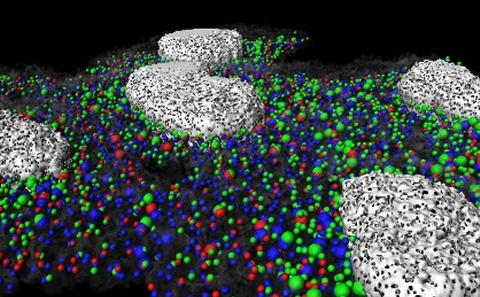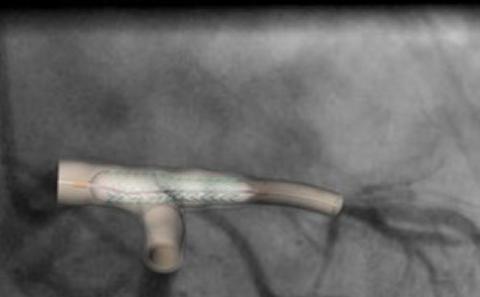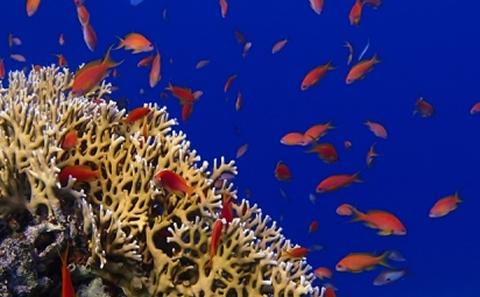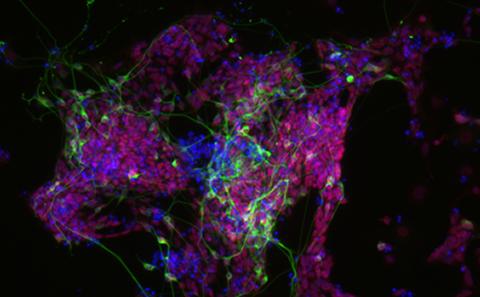Institute for Life Sciences – the success of impact and interdisciplinarity

Southampton’s Institute for Life Sciences (IfLS) is proud of the significant impact it is having across the University, the local region and on government policy.
Since it was launched at the University in 2011 the IfLS has gone from strength to strength. Its membership has substantially grown to more than 300 members and its research collaborations are changing the world in which we live.
Interdisciplinarity lies at the heart of the IfLS, an ethos that reflects a key government priority, and is embodied in the IfLS’ four grand challenges - New Pathways to Health, Life Technologies, Global Change: Systems and Cycles, and Human Nexus.
New Pathways to Health - allows unique collaborations to forge between University academics and NHS clinicians to understand, diagnose and treat diseases within key healthcare areas of national and global relevance including cancer, infection, nutrition, microbiology, respiratory and degenerative diseases.
Life Technologies – focuses on integrating biomedical and health challenges with engineering and physical science solutions, particularly exploring how life technologies can help solve clinical and medical problems through interdisciplinary collaboration.
Global Change: Systems and Cycles - aims to understand and mitigate how changes in environmental conditions affect large scale systems and cycles and the functioning of ecosystems and the human societies that depend on them.
Human Nexus - is a unique 21st century global challenge that draws together data sets from biomedical or environmental sources with cutting edge developments framed around the semantic web and Web Observatory, modelling and high end computing, to develop tools and analytics that will have broad applications, not just to disease states, such as cancer and diabetes, but also to environmental factors and climate change.
IfLS Director Professor Peter J S Smith said: "Not only do our grand challenges capture the heart of the University’s pre-eminence in science and engineering but also local enterprise capabilities. We’re aligning our activities with those smart specialisations and receiving enthusiastic support from local governments and partnerships."
The IfLS has been instrumental in developing this interdisciplinary culture, not only throughout the Institute, but also across the University and out into the wider region. It is continually building and expanding partnerships within the University and the local area and is always ready to welcome new members.
The past four years have seen the Institute act as a catalyst, enabling collaborations between life science researchers, engaging with members through a range of conferences and seminars, facilitating successful funding applications, and developing partnerships with local industries.
Impact
Recently the Institute, together with regional partners such as Southampton City Council and Southampton Science Park, launched a network aiming to position the Solent region at the forefront of innovation in life sciences by developing a hub of expertise and resources that could see ideas being translated into life-changing applications that will benefit society and create high quality jobs.
IfLS Collaboration Manager Dr Alexandra Mant said: "The IfLS is truly interdisciplinary with a diversity of membership spreading across, not only the traditional life science disciplines of Medicine and Biological Sciences, but a wider area including Business and Law, Physical Sciences, Engineering and Chemistry.
We have created a model of networking and collaboration that has proved a great success and is already having significant impact locally and nationally. Our aim now is to become even more externally facing and build out that network into the wider region."/p>
Dawn Baxendale, Chief Executive, Southampton City Council commented on the importance of building on the life sciences expertise at Southampton and in the local region in a recent article produced by Southampton City Council. "Southampton is undoubtedly the leading city on the south coast in terms of economic growth. We are already recognised as a key maritime and marine region and we want to build on our other strengths, such as life sciences, to raise our profile and become recognised as a centre for life science expertise. As a region we would benefit from this on so many levels in terms of economic growth, employment and reputation."
Broadening scientific opportunities
Watch and share
Featured below are four videos representing the four grand challenges with insight from the leads of each challenge. Please watch and share. Our mission is to facilitate fusions of expertise in research and education from a range of disciplines in order to broaden scientific opportunities. This can only be achieved by knowledge sharing and participation.
IfLS Conference Living in a High Carbon World | 15th September 2015
The IfLS event Living in a High Carbon World will bring scientists from many different disciplines across the University together with colleagues from local research institutes, and other UK universities, to discuss the pressing questions facing humanity living in a high carbon world with increasing atmospheric CO2 levels. The conference is another significant event from the IfLS’ highly active interdisciplinary community that is seeking to change the way we address some of the most sensitive challenges in our world today through truly unique and innovative scientific investigation.
IfLS Annual Report 2015
The success of our community in the last four years has allowed us to continue supporting and facilitating exciting collaborations. We as a community are addressing some of today’s key global challenges and delivering impact from a regional to a global stage. This years report showcases our developments in the last year, including our integration into regional partnership with a joint aim of positioning the Solent region as a leader in life sciences research, development and innovation.

New Pathways to Health
Novel solutions for everyday problems.

Life Technologies
Key areas of excellence translatable to medical practice & pathways to health.

Global Change: Systems & Cycles
Understanding global change by studying its impact at multiple levels.

Human Nexus
A unique 21st century data challenge featuring environment, health and the semantic web.